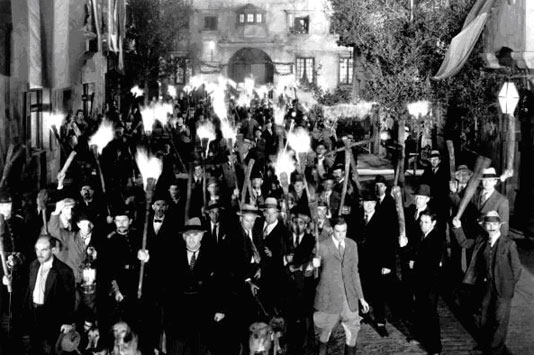
It’s sad, really. Tremendous gains in vehicle fuel efficiency have been squandered, MIT’s Christopher Knittel demonstrates in a study published in the American Economic Review. Knittel’s analysis quantifies how, while automakers have applied meaningful fuel economy innovations over the past several decades, these have produced only modest gains in miles per gallon, because at the same time the companies inflated horsepower and vehicle size. As MIT’s press release put it:
Thus if Americans today were driving cars of the same size and power that were typical in 1980, the country’s fleet of autos would have jumped from an average of about 23 miles per gallon (mpg) to roughly 37 mpg, well above the current average of around 27 mpg. Instead, Knittel says, “Most of that technological progress has gone into [compensating for] weight and horsepower.”
Based on this history, Knittel rightly concludes that market forces cannot drive the social and environmental good of fuel efficiency; he supports an increase in the gas tax. Unfortunately, he goes on to perpetuate a convenient fallacy that has provided cover for an industry looking to evade regulation and avoid responsibility:
“I find little fault with the auto manufacturers, because there has been no incentive to put technologies into overall fuel economy,” Knittel says. “Firms are going to give consumers what they want, and if gas prices are low, consumers are going to want big, fast cars.”
In response to calls for less polluting or less dangerous vehicles, the auto industry has often depicted itself as hostage to a voracious, and quite imaginative, consumer mob that stands in the way of such progress. Apparently, car buyers expend great energy dreaming up spectacular new ideas for cars, which they then conspire to demand from the industry.
NHTSA should act swiftly and decisively on the plethora of distracting technologies being built into vehicles.
The truth is, consumers rarely want a product that they don’t know exists or that doesn’t exist yet. As marketing expert James Twitchell puts it, “In reality people often do not know what they want until they learn what others are consuming. Desire is contagious, just like the flu.” It isn’t until they see others wanting a product -- in the media or in real life -- that consumers start to want it.
Suburbanites across America were not collectively thunderstruck in the 1980s by the realization that living the good life meant clambering up into a giant vehicle. Instead, automakers, eager to sell more high-margin products, took advantage of regulatory loopholes to push bigger and bigger vehicles. They repositioned clunky trucks as “sport utility vehicles,” transforming them into symbols of wealth, leisure, and suburban family values. In ads, they implied that SUVs were safer by virtue of their heft and hammered on the need for capacious cargo space. The effort was so successful that despite the recession and outcry over gas prices, SUVs and SUV crossovers currently account for 31 percent of U.S. auto sales.
And ordinary people, who spend much of their drive time slogging through stop-and-go traffic, inching across parking lots, and idling in drive-thrus, never rose up in protest that cars weren’t meeting their horsepower needs. Instead, automakers have been stoking desire for superfluous power and speed since the 1960s. Yes, drivers need to be able to merge onto highways safely, but going from zero to 60 in so many seconds and speedometers topping out at 150 mph are marketing conceits reminiscent of Nigel Tufnel's amp that went to 11.
Now what consumers want, in addition to size and horsepower, the industry tells us, are “connected vehicles.” And while some of what buyers are clamoring for in this regard are safety features, many are distracting technologies automakers are promoting, like enabling a driver to post a Facebook status while changing lanes or run a Google search at a four-way stop. It would be naïve not to anticipate that turning cars into rolling smartphones could cancel out decades of safety innovations just as increasing size and power negated fuel economy gains.
Car companies will seek to maximize profits; this is their fiduciary duty to shareholders. But blaming consumers for their failure to deliver safety or environmental improvements is merely an evasion of their corporate responsibility to contribute to the common good by reducing the social ills their products create. So we can’t rely on the corporations for meaningful progress. And allowing consumer preferences, even if they were independent of industry influence, to drive policy on automotive issues would be a mistake: It equates the car consumer with the citizen and the short-term interests of drivers with the long-term interests of the nation.
To achieve a national vehicle fleet that does less damage to public health, we must have stronger regulations and now. The proposed 54.5 mpg CAFE standard, over which public hearings are now taking place, should be adopted. The states should follow the NTSB’s recent recommendation to ban nonemergency cell phone use by drivers. And NHTSA should act swiftly and decisively on the plethora of distracting technologies being built into vehicles. Let’s not wake up in forty years to calculate another squandered opportunity.
Anne Lutz Fernandez, a former investment banker and marketing executive, is co-author, with anthropologist Catherine Lutz, of Carjacked: The Culture of the Automobile and its Effect on Our Lives.





